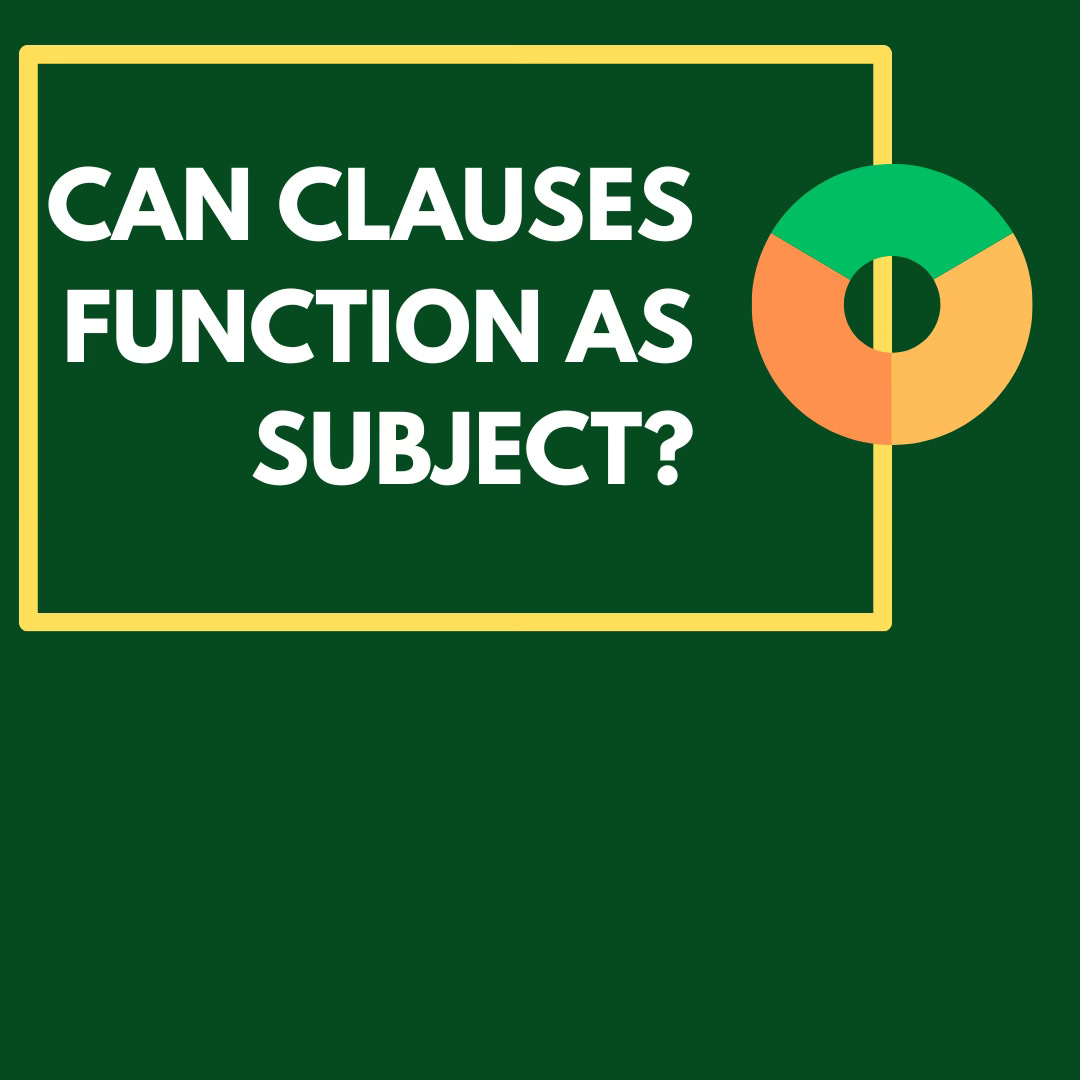Can clauses function as Subject?
In earlier posts we saw that adjective phrases cannot function as Subject, but prepositional phrases can, though in a restricted way. What about clauses? Can they function as Subject?
The answer is ‘yes’, but it’s unusual. Here is an example:
[That we will never go to this restaurant again] is quite obvious.
This is a perfectly grammatical sentence of English, but it is a bit ‘top heavy’. What I mean by that is that it takes quite a while before we get to the verb is, because the Subject is quite long.
Although they are grammatical, clauses functioning as Subject are unusual because English sentences prefer ‘heavy’ sentential constituents, i.e. units with lots of words in them, to be placed towards the end. In this regard English typically follows an information structuring principle called the Principle of End Weight. You can see it at work in the following example:
I consider [the person who invented heated toilet seats for the comfort of millions of people] a genius.
I consider _ a genius [the person who invented heated toilet seats for the comfort of millions of people].
In these sentences the ‘heavy’ noun phrase the person who invented heated toilet seats for the comfort of millions of people, which carries the function of Direct Object, has been displaced to the end of the sentence from the position of the underscore (‘_’). This makes the mental processing of this sentence easier.
Clausal Subjects too are often displaced, in accordance with the Principle of End Weight, to the end of sentences under a process called ‘extraposition’. Compare the following sentence with the one quoted above:
It is quite obvious [that we will never go to this restaurant again].
Here the clausal Subject that we will never go to this restaurant again contains quite a few words, and the sentence is easier to process if we place it at the end. We put a placeholder Subject, in the shape of the pronoun it, in the position where the clause was moved from.
You may wonder: if heavy clausal Subjects are dispreferred in English, why do they occur at all?
This is often for textual reasons, for example to create a link to something that was said or written earlier in a conversation or piece of writing, as in the following scenario:
When we visited Il Diavolo the waiters were so rude: it took them ages to take our order, and when the food arrived it was cold. That we will never go to this restaurant again is quite obvious.
In this short text placing the clausal Subject at the start of the second sentence makes sense, because here its content is semantically linked to what is said immediately before. In this case the Principle of End Weight is overridden for the sake of textual cohesion.
In the example above we had a that-clause functioning as Subject. This is a finite clause, i.e. a clause with a tensed verb in it. Non-finite clauses in the shape of a to-infinitive clause can also function as Subject, with or without their own Subject:
[For us to be able to see the Vermeers in the National Gallery] was pure bliss.
[To be in Rome in the spring] is a joy.
Clauses containing a present participle (participial clauses) can also occur in Subject position, again with or without their own Subject:
[Politicians spreading conspiracy theories on the internet] poses a risk to our democracy.
[Having your lunch in the sun on a terrace] makes you feel good.
The following baffling headline from the Guardian (30 April 2025) is ungrammatical:
It should read either:
[Climate experts and politicians turning on Tony Blair] risks sending absolutely the wrong message, says climate expert.
or:
[For climate experts and politicians to turn on Tony Blair] risks sending absolutely the wrong message, says climate expert.
PS: see the comments for a third possible fix which I overlooked!





Love this. I recently talked about "end focus" on my substack Delusions of Grammar. (Albeit in a much more silly way. I taught it at the dog beach.) Is the Principle of End Weight the same as End Focus? Maybe just a different name for the same thing?
It seems to me that the simplest fix for the Guardian headline is: "Climate experts' and politicians' turn on Tony Blair risks &c", which I may be primed for because my perhaps overlatinized sensibility would call the "politicians spreading conspiracy theories on the internet" example incorrect and have it be either: (a) "politicians spreading conspiracy theories on the internet pose a risk to our democracy" or (b) "politicians' spreading of conspiracy theories on the internet poses a risk to our democracy": the risk comes either from the politicians (in which case "pose" should be plural) or, if "pose" is singular and the risk is the spreading, then it's *their* spreading.
Incidentally, I find the "I consider a genius the person who …" to be somewhat affected compared to "I consider the person who … a genius": the construction of the former strikes me as rather stilted and formal, and actually less easily processed, precisely because the order of the components is all out of whack: I very much want the object of "consider" to follow it immediately, independent of its length, unless the complement is being especially emphasized. "I consider any friend of his a friend of mine" is much better, or at least plainer, than "I consider a friend of mine any friend of his"; "I consider anyone who would condescend to speak at that conference, which is well known for hosting the worst sort of pseudo-sophisticated nonsense that actually just recapitulates the idiocy that passes for conventional wisdom in these disgraceful times, utterly reprehensible" is at a minimum not worse than "I consider utterly reprehensible anyone who would &c"